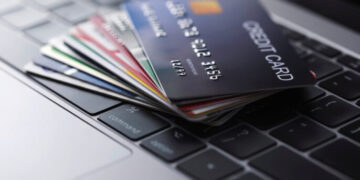
Safe Deposit Methods for Online
In today’s digital age, the need for secure online transactions has never been more important. As more individuals and businesses turn to online banking, understanding the various safe deposit methods available is essential. This article explores the best practices for safeguarding your finances in the virtual realm, including Safe Deposit Methods for Online Casinos https://glory-casinoapk.com/, encryption technologies, and precautionary measures that can enhance your online security.
Importance of Safe Deposit Methods
With the rise in cyber threats, it is imperative to adopt secure deposit methods when making online transactions. The financial sector has seen an increase in identity theft, phishing attacks, and other fraudulent activities that can jeopardize personal information and finances. Implementing safe deposit methods not only protects users but also instills confidence in the online banking system.
Common Safe Deposit Methods
Several deposit methods are considered safe for online transactions. The following are some popular options for secure deposits:
1. Credit and Debit Cards
Credit and debit cards are widely used for online deposits. Most banks and payment processors employ advanced encryption technologies that help to protect cardholder information. Look for merchants that provide secure payment gateways, indicated by the ‘https’ in their web address and trust badges on their payment pages.
2. E-Wallets
E-wallets like PayPal, Skrill, and Neteller have gained popularity due to their added layer of security. When using an e-wallet, you do not need to input your card information directly on merchant websites. Furthermore, they often provide dispute resolution and fraud protection services that can be beneficial for users.

3. Bank Transfers
Direct bank transfers can also be a safe deposit method. However, it’s essential to ensure that the bank you are using employs secure transaction processes. Moreover, bank transfers usually involve higher security protocols, making it less likely for your information to be compromised.
4. Cryptocurrency
Cryptocurrencies like Bitcoin and Ethereum offer a unique perspective on online payments. While not without risk, they provide anonymity and security through blockchain technology. However, users should exercise caution due to the volatility of cryptocurrencies and the potential for unregulated exchanges.
5. Prepaid Cards
Prepaid cards are another viable option for safe deposits. They allow users to load a specific amount of money and use it for online transactions without the risk of overspending or exposing their primary banking information. Additionally, if a prepaid card is compromised, the financial loss is limited to the amount loaded onto the card.
Best Practices for Safe Online Deposits
Beyond selecting a safe deposit method, applying best practices is crucial in maintaining online security:
1. Use Strong Passwords

Always utilize strong and unique passwords for your online accounts. A combination of letters, numbers, and special characters can prevent unauthorized access. Additionally, consider using a password manager to keep track of your login credentials securely.
2. Enable Two-Factor Authentication (2FA)
Utilizing two-factor authentication adds an extra layer of security. Even if someone obtains your password, they would still need a second form of verification to access your account. This could be a code sent to your mobile device or an authentication app.
3. Keep Software Updated
Regularly updating your device’s operating system, web browsers, and security software can help protect against new threats. Updates often come with patches for known vulnerabilities, making it harder for hackers to exploit weaknesses in the system.
4. Monitor Transactions Regularly
Regularly check your bank and credit card statements to catch any unauthorized transactions promptly. Setting up transaction alerts can help you stay informed of any activity on your accounts.
5. Be Wary of Phishing Scams
Phishing scams are attempts to trick users into giving away personal information through fraudulent emails or websites. Always verify the source before clicking on links or supplying personal details. Look for signs of a legitimate email, such as proper grammar and recognizable sender information.
Conclusion
In conclusion, ensuring safe deposit methods for online transactions is essential in today’s digital landscape. By utilizing secure payment options, implementing best practices, and staying informed about potential threats, users can protect their finances and data effectively. Remember, being proactive about your online security is key to safeguarding your financial well-being.
style=”display:none;”>





















































